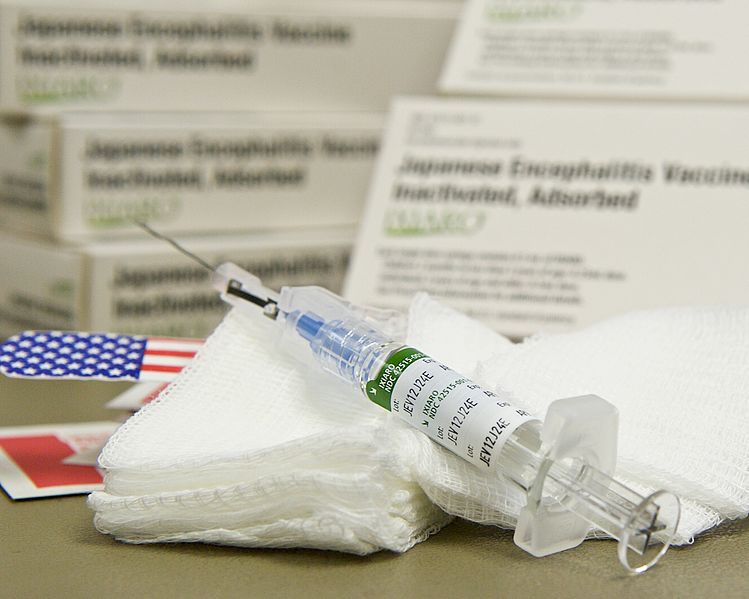The Malaysia Ministry of Health (MOH) recently reported a Japanese encephalitis (JE) case in Sarawak state; however, they say that there is not an epidemic of the mosquitoborne viral disease.

U.S. Air Force photo by Tech. Sgt. James Stewart
Between January and June 23, five cases were reported in Sarawak and all reported cases were sporadic. No JE epidemic was reported in the state of Sawarak. The affected areas were one (1) case in Samarahan, Lawas, Julau, Miri and Sri Aman.
Japanese encephalitis (JE) is the most important cause of viral encephalitis in Asia. About 68,000 clinical cases are reported annually. It usually occurs in rural or agricultural areas, often associated with rice farming.
JE virus is transmitted to humans through the bite of infected Culex species mosquitoes, particularly Culex tritaeniorhynchus.
Malaysia reports 5th human rabies case in Sarawak this year
Most JE virus infections are mild (fever and headache) or without apparent symptoms, but approximately 1 in 250 infections results in severe disease characterized by rapid onset of high fever, headache, neck stiffness, disorientation, coma, seizures, spastic paralysis and death. The case-fatality rate can be as high as 30% among those with disease symptoms.
There is a protective vaccine against Japanese encephalitis virus.
The JE Immunization Program was introduced in 2002 in Sarawak for the high incidence of JE case in Sarawak, which was 55 cases in 1999 with an incidence rate of 2.61 per 100,000 population. Two years after the Immunization program was implemented in the state, in 2004 the number of JE cases reported reduced to 22 cases and after 16 years of this program, the number of JE cases decreased further to 10 cases in 2017.
- Lyme disease vaccine update: ‘Significant progress’ being made
- Taiwan reports 1st locally-acquired dengue case of the year in Kaohsiung City
- West Virginia hepatitis A outbreak: More than 400 cases, one death
- Sustaining vaccine confidence in a post-truth era: Panel Q&A from ISNTD d³ 2018
- Redefining Access to Medicines: Panel Q&A from ISNTD d³ 2018
- Utah hepatitis A outbreak: 70% of cases in Salt Lake County
- Colorado officials investigate Crypto, Giardia cases and possible link to Water World

